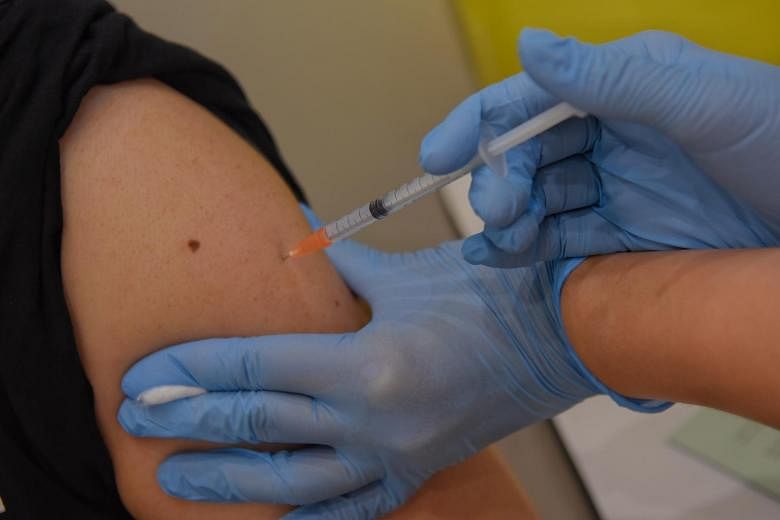SINGAPORE - Brunei and Singapore will embark on a study to determine the long-term immune response and efficacy of Covid-19 vaccines in fully vaccinated individuals in Brunei.
Announcing this on Thursday (Oct 7), Temasek Foundation and Brunei's Ministry of Health said the results will help public health policymakers decide on Covid-19 control strategies.
These include travel policies and green lane arrangements.
Fully vaccinated travellers from Brunei can enter Singapore via the vaccinated travel lane, without having to serve a stay-home notice period.
Making the announcement at the Asean Ministerial Conference for Digital Public Health, the two organisations said the results will be used to determine the optimum length of quarantine periods for travellers.
It will also help decide if booster shots should be mandated for individuals with low levels of neutralising antibodies.
Temasek Foundation and Brunei's Ministry of Health said the study is part of efforts to deepen cooperation in public health research in response to challenges affecting Asean and the rest of the world by the Covid-19 pandemic.
Researchers will collect blood samples from 3,000 vaccinated people based in Bandar Seri Begawan, Brunei's capital city, the joint statement said.
They will then measure the level of neutralising antibodies against the coronavirus. Neutralising antibodies are highly predictive of immune protection against viral infection.
The results will be used to determine and compare the individual's immunity against Covid-19 and the efficacy of the vaccines.
Brunei currently uses the Moderna, Pfizer, Astra-Zeneca and Sinopharm vaccines. Just over 50 per cent of its population are fully vaccinated.
Data collected can be used to infer the level of herd immunity to Covid-19.
If these vaccinated individuals do catch the virus, the research can also provide some data on the correlation of vaccine protection against infection, the joint statement said.
The research, which is being funded by Temasek Foundation, will be co-led by Brunei's Ministry of Health, Universitas Brunei Darussalam and the Duke-NUS Medical School in Singapore.
Dr Justin Wong, who is head of the Disease Control Division in Brunei's Ministry of Health, said the research project aims to generate high-quality scientific data that can guide policy decisions on the national Covid-19 vaccination programme in Brunei.
"We look forward to future research collaboration that contributes towards delivering on improved health outcomes across the region," he added.
Mr Benedict Cheong, chief executive of Temasek Foundation International, said with the next unknown crisis presenting as an imminent threat to Singapore and countries in region, better dialogue and collaboration can help to enhance preparedness and readiness.
Besides Brunei, Temasek Foundation is collaborating with other Asean countries on various initiatives, such as research and sero-surveillance programmes to enhance to crisis preparedness and response.
Sero-surveys provide estimates of population immunity due to past infection or vaccination.












